Network, network, network – CBS graduates advise on getting your first job
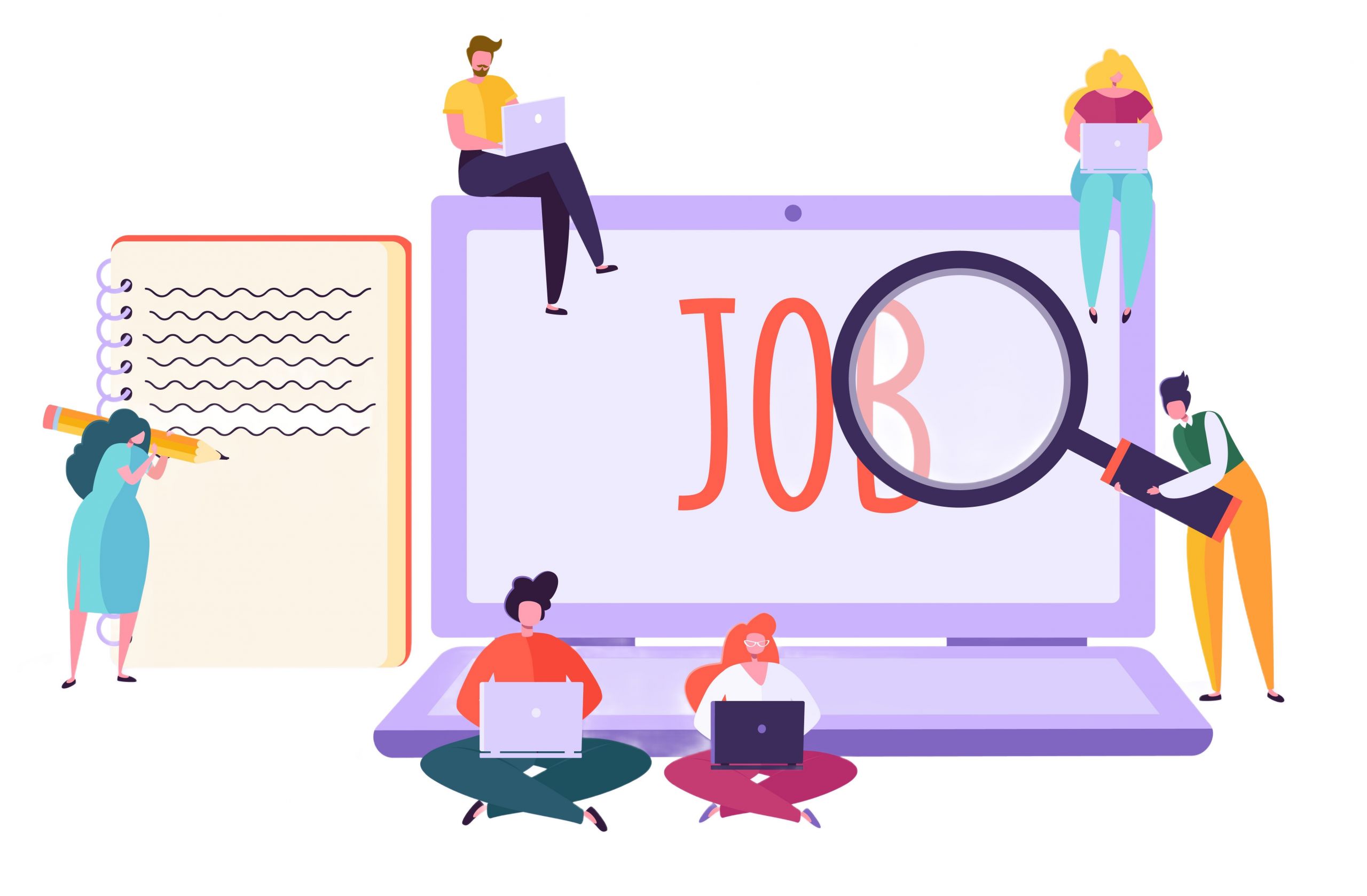
Illustration: Shutterstock
There are many approaches to finding your first job. Three recent CBS graduates talk about how they landed theirs. Their approaches were quite different, yet they all highlight networking as a key element.
For some, the idea of securing their very first job fills them with anxiety, concern and self-doubt as they wonder whether they are good enough. Others look forward to showing potential employers their skills. For many, it is a mix of the two.
No matter how you feel, there are many different potential approaches, which means you can find one that suits you. CBS WIRE talked to three recent CBS graduates about how they found their first full-time positions after university and asked them to share their advice.
Apply within the first 24 hours of a job being posted
When Andreas Bo Schmidt graduated from CBS in 2021 with a master’s degree in business and development studies, he did not apply for a full-time position immediately. Instead, he finished a project he was working on at his student job, took a couple of weeks’ vacation – and watched from the sidelines as his friends and former classmates applied for their first jobs after CBS.
This, along with advice from a recruitment expert, helped him form the winning strategy.
“I would find relevant jobs on LinkedIn, sort them by date, and then apply for the ones that had been posted within the last 24 hours,” he says.
He felt that being one of the first to apply for a job gave him an advantage. In the space of about a month, he had applied for about 20 jobs and interviewed for three or four positions before landing a sustainability consultant job at PWC. A job he switched for one at Novo Nordisk a year later.

Andreas Bo Schmidt. Photo: PwC Denmark
To speed up the process, he had some generic paragraphs for a cover letter and CV ready. Both could easily be tweaked to match relevant positions.
“I would change both to match the positions I was applying for but having something already at hand was a great help in writing applications fast,” he says.
He was pleasantly surprised by the amount of feedback he received even if he did not get the job, but also felt he had his fair share of employers who never even responded. And some that he did not hear from until months later when he had already landed his first job.
His best advice to others who are job hunting is to look at jobs posted on LinkedIn.
“Then keep in touch with your fellow students. Networking is such a good way to hear about new positions and gain a foothold at other companies,” he says.
Prepare to speak the employer’s language
Hannibaal Skov Al Awssi, a CBS graduate from 2022 with a master’s degree in business administration and commercial law, took a very different approach to landing his first full-time job. He started as an intern at Novo Nordisk while still studying for his master’s degree so he could use his existing network when applying for a full-time position.
“Novo Nordisk is very keen for talented interns to stay in the company, which was why my manager helped me look for departments that were recruiting,” he says.
When applying for the internship, he did three or four interviews and took a test. He prepared thoroughly for the interviews by researching the pharma world, reading Novo Nordisk’s website as well as checking the latest news on MedWatch. He therefore knew all about acquisitions and a preliminary prospectus for new medicine and, most importantly, had a basic pharmaceutical vocabulary.
“Many managers in charge of hiring new employees are used to talking about these matters in a way that outsiders might not necessarily understand. Because I had done so much research, we could talk at their level, which meant the interviews flowed much more smoothly and felt more like a conversation,” he says.
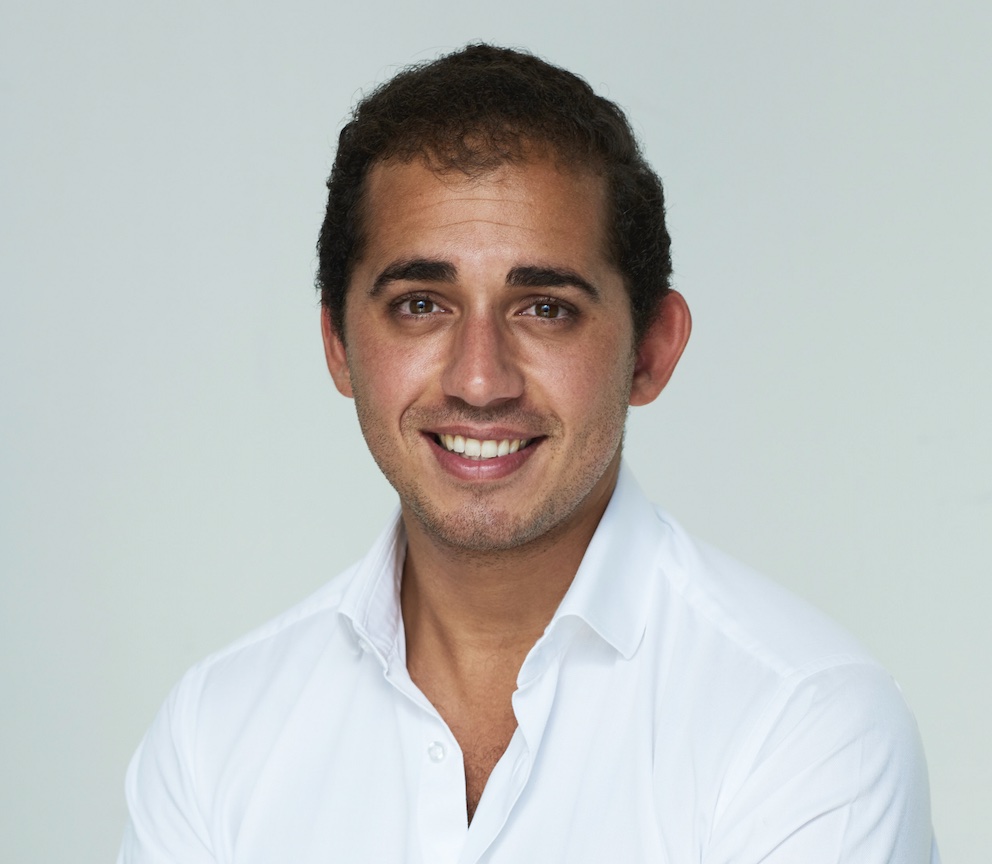
Hannibaal-Skov-Al-Awssi. Photo: William Rugaard-Lunde
Not surprisingly, Hannibaal Skov Al Awssi highlights networking as key for getting a new job.
“Keeping in touch is crucial for your career because you can help others – and they can help you land a position,” he says, explaining the potential advantages of starting in one corner of a company and working your way around it, instead of thinking of a career as linear.
“My impression is that leading executives want people who have a holistic view of the company and know many aspects of it, which is why they encourage their employees to take a more horizontal career path,” he says.
From student worker to full-time job without an interview
In the same way, Kristine Nielsen, a 2021 graduate with a master’s degree in international business communication, was hired by the company PKA, where she started working while a student. Unlike Hannibaal Skov Al Awssi, Kristine Nielsen sidestepped a lot of interviews and tests before getting a job. When she graduated, her manager simply asked if she was interested in a full-time job and she said yes.
She spent eight months as an ESG analyst before applying for a position as an associate in financial services at PWC. Now she faced several interviews, tests, and case studies – and all of them in German, since the job was in Frankfurt am Main.
“It felt like being back at university, where I had to study and prepare for the interviews and case studies,” she explains, admitting that she was a bit surprised by the many interviews and tests.
She was pleasantly surprised that she could then advance quicker in the company thanks to her experiences in a relevant student job.

Kristine Vestergaard Nielsen. Photo: Private
“I have been promoted quicker than some of my colleagues who graduated at the same time, but they had no relevant student job, perhaps working as waiters or similar when they were studying,” she says. Besides experience, relevant student jobs give you a great network, which is also something that she highlights as important in landing your first job.
“I got the interview at PKA because my mother knew someone there. I, of course, landed the job based on my own merits, but having someone vouch for you helps. I have helped many of my friends land an interview with PKA, simply because I could recommend them. If you know someone at a workplace you are interested in, it never hurts to ask them for a recommendation,” she says.
Start early and build a network
When you have a thesis to finish and many other tasks to juggle, it can seem better to wait before searching for your first job. But Thomas Kantsø, senior consultant at DJØF, the trade union for graduates of e.g. business and economics, advises starting your job search up to a year before graduation.
“The rule of thumb is six months before, but I know that writing your thesis will not give you much time. Therefore, if you start a year before by writing a CV, pinpointing your strengths and which tasks you can solve, and learning to read job advertisements, you’ll have a head start when you begin actively searching,” he says.
Also, he encourages everyone to be present on LinkedIn. Both because it is a great place to follow prospective employers and see job listings, and also because it is an easy way to network. If you want to know what a job is like, simply find five or six people and send them a message with a few questions.
“Networking is not dangerous. It is a source of new knowledge. And you might as well start now, since it is something that you will be doing for the rest of your career,” he says.
Student jobs are important but not essential
When asked how great a role having a student job plays in landing your first full-time job, Thomas Kantsø answers that they are, of course, vital in many cases.
“But I also want to stress that it is not impossible to land a full-time job if you have not had a relevant student job. Surveys show that it often takes longer, which makes sense since many who have student jobs simply become full-time employees there,” he says.

Thomas Kantsø. Photo: DJØF
He adds, though, that continuing as a full-time employee in your student job can come with its own complication.
“You can end up being seen as the eternal student, even though you have finished your degree,” he says.
It’s not uncommon to apply for 20-40 jobs – Find a strategy to cope with rejection
Thomas Kantsø underlines that you must find a way to cope with rejection.
“It is common to apply for 20 to 40 jobs before landing your first full-time job. So you are looking at somewhere between 19 and 39 rejection letters. When applying for a job, it is important that you find a strategy for dealing with that and don’t take it personally,” he says.
Another point he makes clear is that it is okay to choose the wrong job.
“Your first job will not be the defining job for your career. It is okay to use the first few years after you graduate to try out different jobs and figure out what suits you the best,” he says.



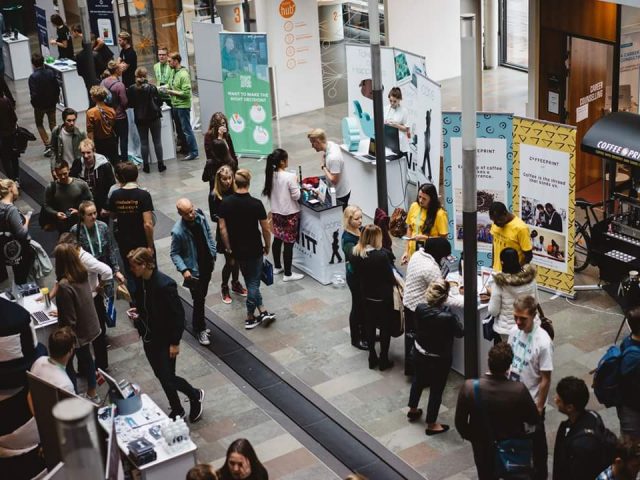
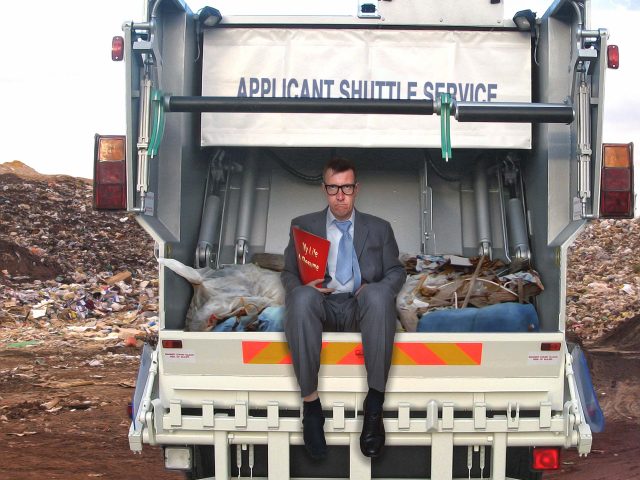


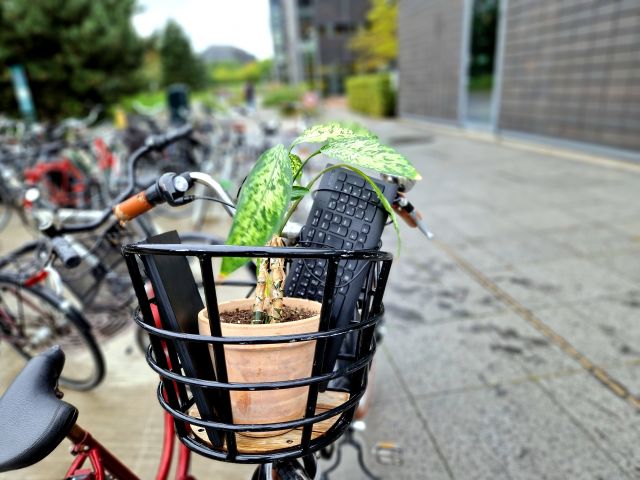




























































































































Comments